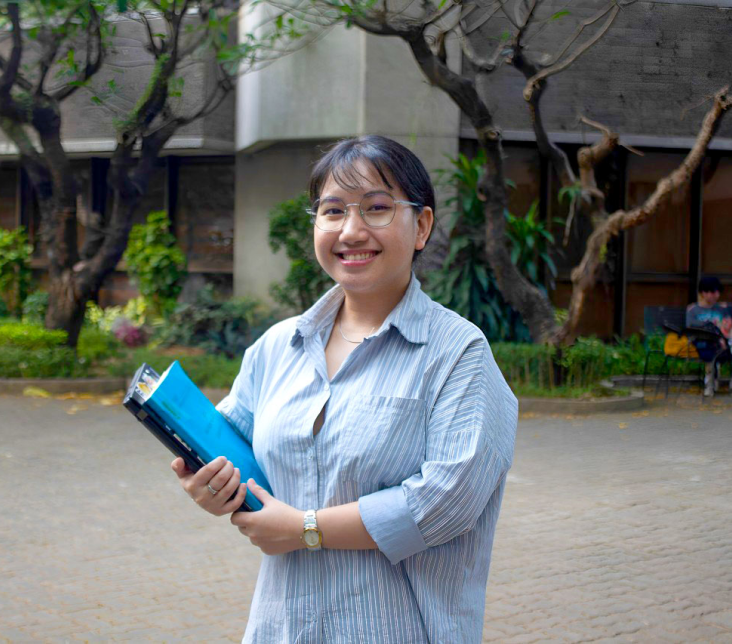Programs
4-Year Programs:
- Bachelor of Science in Civil Engineering (BSCE)
- Bachelor of Science in Data Science (BSDS)
- Bachelor of Science in Industrial Engineering and Management (BSIE)
- Bachelor of Science in Information Technology (BSIT)

Bachelor of Science in Civil Engineering (BSCE)
Civil Engineering (BSCE) is a transformative program that combines rigorous academic training with a hands-on approach, preparing students for a dynamic field. The program forges strong partnerships with top local construction and engineering firms, ensuring students’ engagement in real-world projects and internships. In addition, opportunities to interact with industry experts are available to enhance the university experience that will help BSCE graduates enter seamlessly into the working world.
UA&P’s commitment to innovation is evident in a curriculum that goes beyond traditional learning, emphasizing a competency-based approach for practical skills needed in the competitive world of engineering. The BSCE program trains graduates to apply knowledge of mathematics, calculus-based physics, chemistry, and other basic sciences to civil engineering areas, with a focus on structural engineering. This is aided with the extensive use of computing resources and know-how to ensure that graduates are up to date.
The future of civil engineers lies in the immense push of the country towards its future development through infrastructure. Graduates will have a career in the booming construction industry as designers and construction management. They may also turn to the business aspects of civil engineering, by taking advantage of the valuable insights in the industry.

Bachelor of Science in Data Science (BSDS)
Data Science is a multidisciplinary field that combines aspects of mathematics, statistics, computer science, and domain expertise to analyze and extract actionable insights from vast amounts of data. It equips students with the necessary skills to derive meaningful conclusions and predictions from complex datasets. This enables informed decision-making that are in great demand by businesses and industries.
Our degree program emphasizes critical thinking and problem-solving skills in the context of data analysis. Students learn to formulate research questions, apply appropriate methodologies, and communicate findings effectively. They also gain an understanding of ethical considerations, privacy concerns, and the legal aspects associated with working with sensitive data.
Furthermore, it equips students with a solid foundation in the liberal arts, theoretical concepts, mathematical models, programming tools, and algorithms.
Students gain practical experience through hands-on projects and internships, working with real-world datasets, solving business problems, and building predictive models.
Our graduates have abundant career opportunities in a variety of fields, including finance, healthcare, marketing, technology, and consulting. With the exponential growth of data-driven decision-making in modern organizations, a degree in Data Science opens doors to a dynamic and fulfilling career.

Bachelor of Science in Industrial Engineering and Management (BSIE)
The BS in Industrial Engineering and Management Program is a four-year program envisioned to produce engineering professionals who can plan, design, and implement sound engineering and technology-based solutions to complex economic, management, and industrial problems.
The core strength of our BS Industrial Engineering and Management program lies in its ability to address challenges across various business domains, including logistics and supply chain, as well as significant sustainability issues. This is achieved through scientific approaches in data analytics, modeling, decision-making, and management.
The BS Industrial Engineering and Management program offers two streams: the Standard Program and the Honors Program, catering to diverse student aspirations and career goals.
The Standard Program provides a comprehensive foundation in industrial engineering. This program is ideal for students who wish to build a strong baseline competence in industrial engineering principles and practices.
The Honors Program builds on the Standard Program by adding an advanced level of specialization and training. Students in the Honors Program undertake additional coursework, including a dedicated semester of on-the-job training. They also specialize in one of three focus areas: Logistics and Supply Chain, Decision Sciences, or Sustainability Analytics, allowing them to gain advanced expertise tailored to their interests and career goals.
Our IE graduates, whether from the standard or honors program, thrive in diverse and impactful career paths. Specializing in Logistics/Supply Chain, they lead roles in supply chain optimization, operations management, and strategic procurement. In Decision Sciences, they excel as data modelers, operations research analysts, and business intelligence leaders. With Sustainability Analytics, they drive change as sustainability consultants, environmental analysts, and green innovation strategists.
Beyond these domains, IE’s analytical and systems-thinking foundation opens doors to investment banking, management consulting, and economic forecasting, as well as transformative roles in public policy, business strategy, and even cross-disciplinary fields like medicine or law, where problem-solving and optimization are key.
*Students enrolling in the BS Industrial Engineering Honors Program will initially follow a common curriculum. After completing their first year, they will have the option to select a specialization. However, the availability of each specialization will depend on the number of students who choose to enroll in it.

Bachelor of Science in Information Technology (BSIT)
The Information Technology Program goes beyond the traditional confines of computer science by exposing students to an environment oriented to both business and technology. Students develop technical expertise, business management and soft skills, as well as moral and ethical grounding that they need to become IT professionals for the Philippines, Asia, and the rest of the world.
Our graduates build careers as systems analysts, software engineers, solutions architects, and project managers. Some become database, systems, and network administrators. For the more business-inclined students, there are careers in technical sales, marketing management, and business development. Majority of our graduates work for companies in the software, business-process outsourcing, manufacturing, and telecommunication industries, while a number of them have set up their own high-technology outfits.

